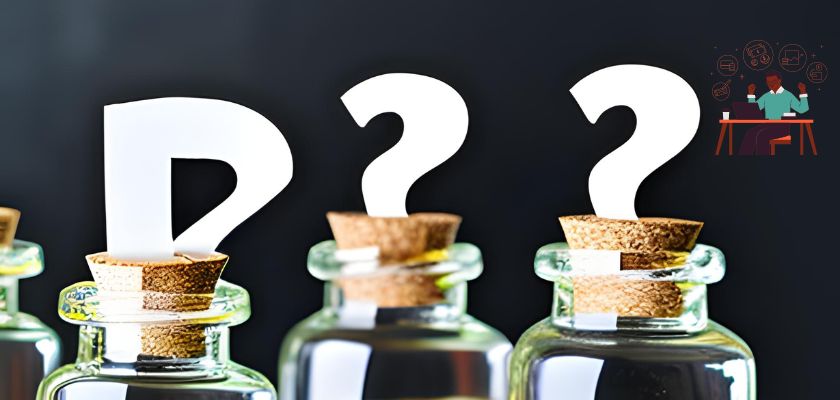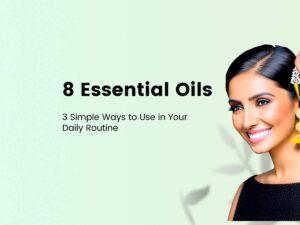Discover the Magic of Aromatherapy
We’re glad you’re here, magical world of aromatherapy! As a certified aromatherapist and your tour guide on this olfactory adventure, my name is Neil Pathak. We shall examine the principles of essential oils in this blog and explore their enormous potential to improve your wellbeing. Let’s start by going through some often asked questions about aromatherapy and its supernatural abilities.
Q&A Section: Essential Oil Fundamentals
What is an Essential Oil and How is it Extracted?
Essential oils are aromatic, highly concentrated liquids that are derived from a variety of plant parts, such as leaves, flowers, stems, and roots. They preserve the plant’s pure essence and smell while providing a variety of medicinal advantages for our health.
Different techniques can be used to extract essential oils, with solvent extraction, cold pressing, and steam distillation being the most popular ones. Steam is used to pass through plant material during steam distillation, releasing the essential oil, which is then gathered and condensed. Citrus fruits are subjected to cold pressing, in which the fruit’s rind is mechanically pressed to extract the essential oil. By using solvents to extract essential oils from delicate flowers, solvent extraction creates extremely aromatic absolutes.
Can aromatherapy truly enhance one’s overall well-being?
Aromatherapy is a comprehensive method for enhancing general wellbeing that has been treasured for ages. Our olfactory system is stimulated by the alluring aromas of essential oils, which results in emotional reactions as well as a sensation of serenity and tranquility. Aromatherapy has a wide range of advantages for your body, mind, and spirit, including reducing stress, enhancing mood, and supporting your immune system.
Is aromatherapy an effective natural remedy?
Absolutely! A powerful natural medicine with a long history of healing practices is aromatherapy. The medicinal potential of essential oils is still being revealed by scientific study, which has demonstrated their anti-inflammatory, antibacterial, and analgesic qualities. Essential oils are a mild and effective method of boosting health and healing, from soothing headaches to reducing muscle tension.
Share your insights on the effectiveness of aromatherapy as a sleep aid.
As a trained and experienced aromatherapist, I have seen firsthand how aromatherapy can significantly improve peoples’ lives, particularly when it comes to sleep. Particularly lavender’s delicate yet potent perfume has long been valued for its ability to promote slumber. Many of my clients who have incorporated essential oils into their bedtime rituals have experienced notable improvements in their sleep patterns and general quality of sleep.
The calming aromas of essential oils not only foster relaxation but also assist to calm the mind and get the body ready for a good night’s sleep. Accepting aromatherapy as a sleep aid can be a fun and efficient approach to improve your sleep experience and benefit from the innumerable advantages of a well-rested mind and body.
How can essential oils aid in achieving restful sleep?
By inducing a peaceful environment and calming the mind, essential oils can do wonders for supporting sound sleep. You can relax and be ready for a restful sleep by diffusing calming essential oils like lavender, roman chamomile, and Frankincense in your bedroom before bed. Alternatively, for a relaxing evening ritual, mix a few drops of these essential oils with a carrier oil and gently massage your pulse points or temples. You will wake up feeling rejuvenated and prepared to take on the day thanks to the relaxing effects of these oils, which promote a deeper and more restorative sleep.
Which essential oils are recommended for newcomers to aromatherapy?
I advise beginning with adaptable and gentle essential oils like lavender, peppermint, and tea tree for individuals who are new to aromatherapy. Because of its well-known calming effects, lavender can be used to encourage relaxation and enhance the quality of sleep. Peppermint has a revitalizing scent that is great for boosting mood and reducing stress. Tea tree is great for skincare and minor skin irritations because of its antibacterial characteristics. These essential oils can be used to create unique experiences and are an excellent introduction to the field of aromatherapy.
How do aromatherapy diffusers disperse essential oils?
Diffusers for aromatherapy release essential oils into the air, enriching your area with enticing smells and providing therapeutic advantages. These diffusers use a variety of techniques to release the aromatic molecules into the air as a fine mist, including ultrasonic, nebulizing, and heat-based technologies. This makes it simple for you to breathe deeply and benefit from aromatherapy.
What does an aromatherapy massage entail?
The application of diluted essential oils to the skin while receiving a massage is known as an aromatherapy massage. This lovely blending of aromatic oils and touch therapy encourages relaxation and eases sore muscles. The aromatic essence of the oils improves the therapeutic benefits of massage, including stress relief and emotional equilibrium.
I hope you have learned a lot about the fundamentals of aromatherapy and the amazing potential of essential oils by the time we reach the end of this first part of our Aromatherapy 101 series. The following blog will continue our investigation of the interesting realm of aromatherapy and address further intriguing questions. Stay tuned for additional olfactory explorations and a thorough explanation of how essential oils can improve your life!



